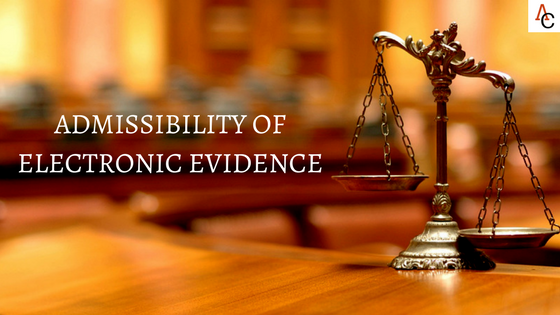Aapka Consultant Judgment Series- In this series, we are providing case analysis of Landmark Judgments of Hon’ble Supreme Court of India.
Anvar P.V v. P.K. Basheer and others
AIR2015SC180: (2014)10SCC473
JUDGES: R.M. Lodha, Kurian Joseph and Rohinton Fali Nariman
Date of Decision: 18.09.2014
FACTS;-
In 2011, the First respondent was declared elected to Eranad Legislative Assembly Constituency against the petitioner, who contested as an independent candidate, allegedly supported by the Left Democratic Front. It was alleged that the first respondent disseminated false information/ statement regarding involvement of the petitioner in the murder of one Manaf by using various promotional tactics with the intention to deliberately raked up to prejudice the prospects of the petitioner. Thereafter, the petitioner sought for a declaration before the High Court of Kerala to set aside the election of the first respondent void for use of corrupt practice of undue influence under section 100(1)(b) read with section 123(2)(ii) and (4) of Representation of People Act, 1951 and also to declare the petitioner as the duly elected candidate from Eranad Assembly Constituency.
The electronic records involved were Video CDs containing the election propaganda announcements, interviews, and public meetings alleged to have been made by the respondent’s side, which were originally recorded in mobile phones and movie cameras, and the same were transferred to computers, and by using the said computers as devices for data transferring, the CDs were produced. The CDs so produced were marked before the court as evidence, without being produced the originals. The High Court dismissed the election petition holding that corrupt practices pleaded in the petition are not proved and, hence, the election cannot be set aside under Section 100(1)(b) of the RP Act; and thus the Appeal.
ISSUE;-
What is the nature and manner of admission of electronic records?
JUDGMENT;-
Hon’ble Apex Court noted that proof of electronic record is a special provision introduced by the IT Act amending various provisions under the Evidence Act. The very caption of Section 65A of the Evidence Act, read with Sections 59 and 65B is sufficient to hold that the special provisions on evidence relating to electronic record shall be governed by the procedure prescribed under Section 65B of the Evidence Act. Special law will always prevail over the general law. It appears, the court omitted to take note of Sections 59 and 65A dealing with the admissibility of electronic record. Sections 63 and 65 have no application in the case of secondary evidence by way of electronic record; the same is wholly governed by Sections 65A and 65B. To that extent, the statement of law on admissibility of secondary evidence pertaining to electronic record, as stated by this court in State (NCT of Delhi) v. Navjot Sandhu alias Afsan Guru [AIR 2005 SC 3820], does not lay down the correct legal position. It requires to be overruled and we do so.
An electronic record by way of secondary evidence shall not be admitted in evidence unless the requirements under Section 65B are satisfied. Thus, in the case of CD, VCD, chip, etc., the same shall be accompanied by the certificate in terms of Section 65B obtained at the time of taking the document, without which, the secondary evidence pertaining to that electronic record, is inadmissible.
Hon’ble Court further noted that, under Section 65B(4) of the Evidence Act, if it is desired to give a statement in any proceedings pertaining to an electronic record, it is permissible provided the following conditions are satisfied:
(a) There must be a certificate which identifies the electronic record containing the statement;
(b) The certificate must describe the manner in which the electronic record was produced;
(c) The certificate must furnish the particulars of the device involved in the production of that record;
(d) The certificate must deal with the applicable conditions mentioned under Section 65B(2) of the Evidence Act; and
(e) The certificate must be signed by a person occupying a responsible official position in relation to the operation of the relevant device.
It was further clarified that the person need only to state in the certificate that the same is to the best of his knowledge and belief. Most importantly, such a certificate must accompany the electronic record like computer printout, Compact Disc (CD), Video Compact Disc (VCD), pen drive, etc., pertaining to which a statement is sought to be given in evidence, when the same is produced in evidence. All these safeguards are taken to ensure the source and authenticity, which are the two hallmarks pertaining to electronic record sought to be used as evidence. Electronic records being more susceptible to tampering, alteration, transposition, excision, etc. without such safeguards, the whole trial based on proof of electronic records can lead to travesty of justice.
HELD;-
The Appellant admittedly has not produced any certificate in terms of Section 65B in respect of the CDs, Exhibits-P4, P8, P9, P10, P12, P13, P15, P20 and P22. Therefore, the same cannot be admitted in evidence. Hence, there is no merit in the appeal and the same is accordingly dismissed.
To Get Legal Opinion from Advocates/ Legal Experts, Please click here
To Get Legal Opinion from Retired Hon’ble Judges, Please click here












